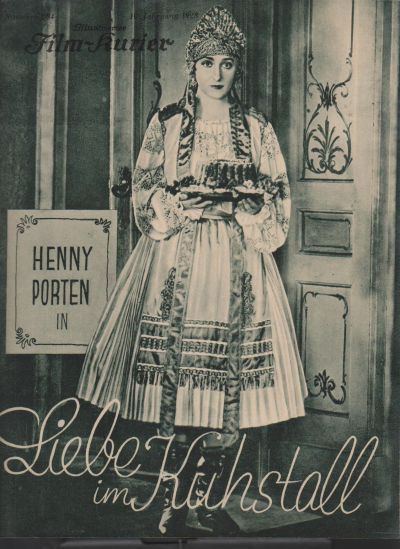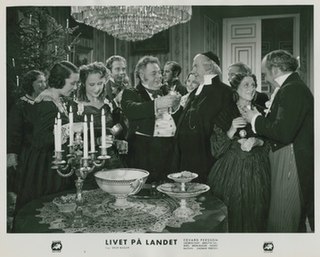Related Research Articles

Max Neufeld was an Austrian film director, actor and screenwriter. He directed 70 films between 1919 and 1957. He directed the 1934 film The Song of the Sun, which starred Vittorio De Sica.
Robert Valberg was an Austrian stage and film actor.
Eugen Neufeld was an Austrian-Jewish film actor. He was the older brother of actor and director Max Neufeld.
The Third Squadron is a 1926 German silent war film directed by Carl Wilhelm and starring Fritz Spira, Eugen Burg, and Reinhold Häussermann. It was shot at the EFA Studios in Berlin and on location in Vienna. The film's art direction was by Otto Erdmann and Hans Sohnle. It was based on a play by Bernhard Buchbinder.
A Free People is a 1925 German silent drama film directed by Martin Berger and starring Albert Florath and Ellen Plessow. It is now considered a lost film.
A Waltz by Strauss is a 1925 Austrian silent film directed by Max Neufeld and starring Eugen Neufeld, Tessy Harrison, and Svet Petrovich.

Love in the Cowshed is a 1928 German silent drama film directed by Carl Froelich and starring Henny Porten, Toni Tetzlaff and Eugen Neufeld. The film's art direction was by Gustav A. Knauer and Willy Schiller. It was distributed by the German branch of Universal Pictures.

Tragedy of Love is a 1923 German silent film directed by Joe May and starring Mia May, Emil Jannings and Marlene Dietrich.
The 335th Infantry Division was an infantry division of the German Army during the Second World War, active from 1940 to 1944. It saw active service in France and on the Eastern Front and was destroyed in fighting in Romania in August 1944.

German Women - German Faithfulness is a 1927 German silent drama film directed by Wolfgang Neff and starring Eugen Neufeld, Philipp Manning and Helga Thomas. Its title is taken from the second verse of the German national anthem.

Colonel Redl is a 1925 Austrian silent drama film directed by Hans Otto and starring Robert Valberg, Eugen Neufeld and Harry Norbert. It portrays the career of the Austrian Army Officer Alfred Redl, exposed as a foreign agent shortly before the First World War.

The Family without Morals is a 1927 Austrian silent film directed by Max Neufeld and starring Anna Kallina, Colette Brettel, and Carmen Cartellieri.
Money in the Streets is a 1922 Austrian-German silent drama film directed by Reinhold Schünzel and starring Liane Haid, Liesl Stillmark and Max Ralph-Ostermann.
The Woman in White is a 1921 Austrian silent drama film directed by Max Neufeld and starring Liane Haid, Dora Kaiser and Eugen Neufeld. It is based on the 1860 novel The Woman in White by Wilkie Collins.
The Ancestress is a 1919 Austrian silent drama film directed by Jacob Fleck and Luise Fleck and starring Liane Haid, Max Neufeld and Karl Ehmann. The same story had previously been shot in 1910.
Light of His Life is a 1921 Austrian silent film directed by Max Neufeld and starring Liane Haid, Eugen Neufeld and Karl Ehmann.

Grandstand for General Staff is a 1932 German comedy film directed by Eugen Thiele and starring Iván Petrovich, Elga Brink, and Betty Bird.
The Dead Wedding Guest is a 1922 Austrian silent historical drama film directed by Max Neufeld and starring Eugen Neufeld, Karl Ehmann and Carmen Cartellieri. It is based on the poem Don Ramiro by Heinrich Heine, set in Spain.
The Tales of Hoffmann is a 1923 Austrian silent film directed by and starring Max Neufeld. The film also features Karl Ehmann, Eugen Neufeld and Robert Valberg.

Life in the Country is a 1943 Swedish historical comedy film directed by Bror Bügler and starring Edvard Persson, George Fant and Birgitta Valberg. It is based on the 1862 German novel From My Farming Days by Fritz Reuter, which had previously been adapted into the 1924 Swedish silent film Life in the Country.
References
- ↑ Grange p.234